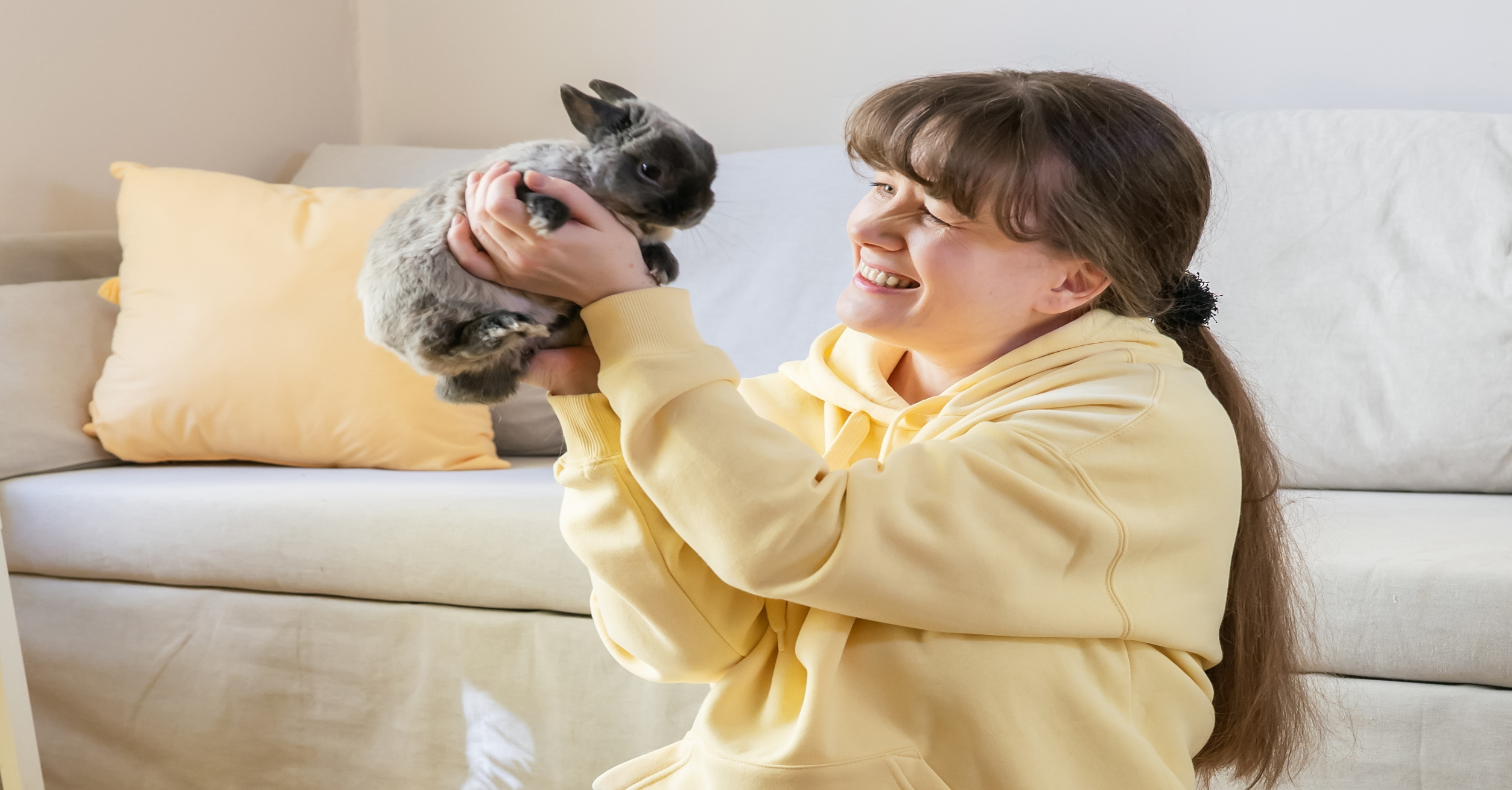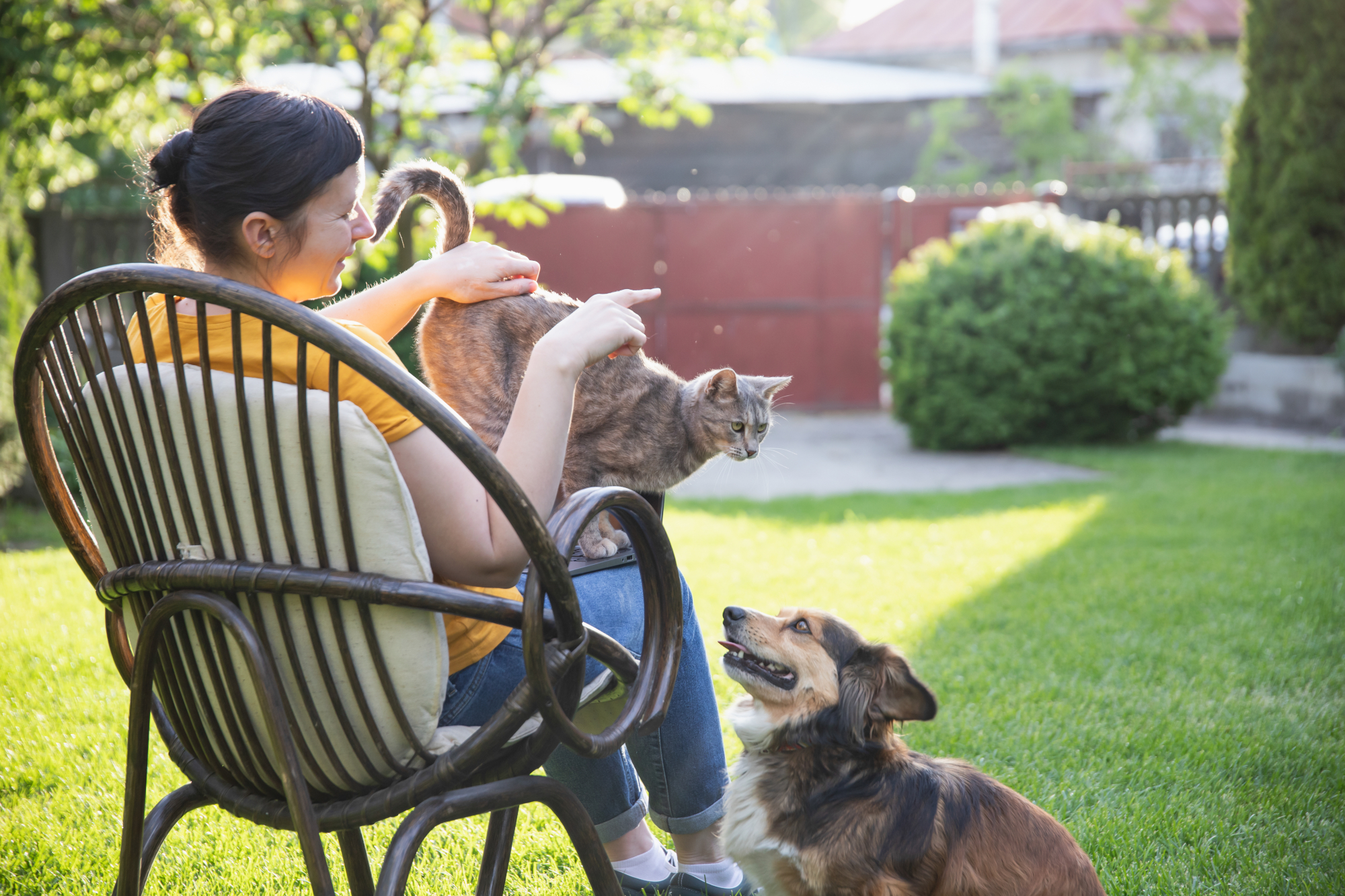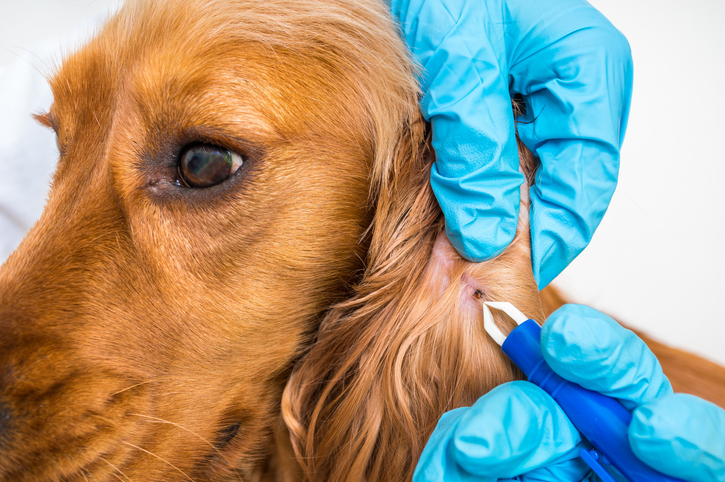Welcome to part one of our preventive pet care series! Here we cover some of the most essential tips to proactively care for your rabbit’s health, including tips on food, medications, treats, toys, exercise, and everything in between. Stay tuned for parts 2 and 3.
Like all living things, rabbits require a few specific things on a regular basis to stay in the best possible health. If you have a rabbit, you already know the basics: food, water, shelter, a litter box, and so on. But what about their needs that aren’t daily, yet still need to be fulfilled regularly?
In this article, we’ll go over a few weekly, monthly, and yearly habits to get into in order to be proactive about your rabbit’s health.
Daily Routines
Generally speaking, rabbits greatly appreciate a sense of predictable routine. Most rabbits can become stressed or scared easily, so providing consistency and familiarity will help them feel as comfortable as possible.
To provide this sense of predictability, first you need to stay on top of the essential daily routines for your rabbit. These help your rabbit with nutrition and sanitation, keep stress levels low, and ensure they live a long and happy life free of injury and illness. These are the top things to be doing for your rabbit daily:
- Feed your rabbit fresh hay, pellets, and greens every day
- Provide fresh water at least once a day, if not more
- Change the litter box daily
- Make sure your rabbit gets 3-4 hours total of exercise each day, both alone and with your help, not only one or the other
- Spend time giving your rabbit attention, socialization, and love every day
Once you get into a consistent habit of doing these simple tasks daily, your rabbit will feel safer and more comfortable, and they’ll also be healthier for it.
Now, what about important routines that don’t need to happen every day?
Weekly, Monthly, and Yearly Routines
Clean Your Rabbit’s Enclosure
As we mentioned before, you should really be doing your rabbit the favour of cleaning their litter box out daily–and yes, rabbits can use a litter box too! Not only does litter training and cleaning help keep your rabbit’s living space and your home clean and fresh, which is great for both you and your rabbit, but it also gives you the opportunity to spot any unusual changes in the rabbit’s physical health. Changes in scent, colour, consistency, or amount can be warning signs of potential health issues.
Beyond the litter box, however, you should also be regularly cleaning the entire rabbit enclosure—typically once a week. Clean any hay, urine spray, and fur from the cage, hutch, and other parts of the enclosure. This helps keep a sanitary environment for your rabbit and will prevent infection or certain illnesses. It will also help keep your rabbit feeling relaxed and comfortable.
Basic Health Examination
We recommend taking some time every week or two to do a basic health check on your rabbit. You should essentially just search for infections, injuries, or anything else that’s out of the ordinary. Here are a few key steps to include in your routine health check:
- Teeth – Gently pull back your rabbit’s lips and give a gentle massage to their cheeks to check if their teeth are beginning to overgrow.
- Skin – Carefully look and feel along your rabbit’s skin to check for any strange bumps, sores, rashes, cuts, or other irritations.
- Eyes, Ears, and Nose – Take a look around your rabbit’s eyes, ears, and nose, looking for any liquid discharge or crusting, which is usually a sign of infection. Watery eyes and a runny nose are also early symptoms of rabbit snuffles, which is best detected early.
- Feet – Have a look at your rabbit’s feet to make sure they’re not developing any sores, especially around the heels. You’ll want to take special care to do this often with older rabbits, who are more prone to developing issues with their feet.
- Balance and Coordination – Last but not least, observe your rabbit as they move around to see how balanced and coordinated they look. If it seems like they’re having a hard time staying balanced, it could be a sign of an inner ear infection.
Nail Clipping
For most rabbits, nail clipping is only necessary every 2-3 months, though your vet may suggest otherwise depending on your specific rabbit. If you allow your rabbit’s nails to grow too long, it can cause limited mobility, discomfort, or even pain caused by injuries. Prevent these issues with the simple, proactive habit of nail clipping. A good rule of thumb is that if you can hear your rabbit’s nails clacking on the floor while they move, it’s probably time to trim. Be sure to check each individual nail while trimming, as they may not all need to be cut at the same time or as much.
Grooming
Depending on your breed of rabbit, grooming and brushing could be a monthly affair or a weekly one. It’s usually only necessary to brush as your bunny sheds their thick winter coat, though long-haired breeds like angoras or lionheads may need more frequent and ongoing brushing to stay comfortable. Brushing can help stimulate the skin, restore blood flow, and keep your rabbit’s coat shiny and healthy. It also tends to relax and calm many rabbits.
Vet Appointments
Last but not least are routine check-ups with your veterinarian. Having an established relationship with a trusted vet is one of the most invaluable ways to get proactive about your rabbit’s health. Not only do appointments qualify as monthly and yearly routines of good rabbit care, but also they’ll help you and your vet navigate specific health concerns and generally give you the answers you need to take care of your furry friend. Vet visits typically occur annually for rabbits, though your vet may suggest a different schedule depending on the situation.
Creative Commons Attribution: Permission is granted to repost this article in its entirety with credit to Hastings Veterinary Hospital and a clickable link back to this page.






